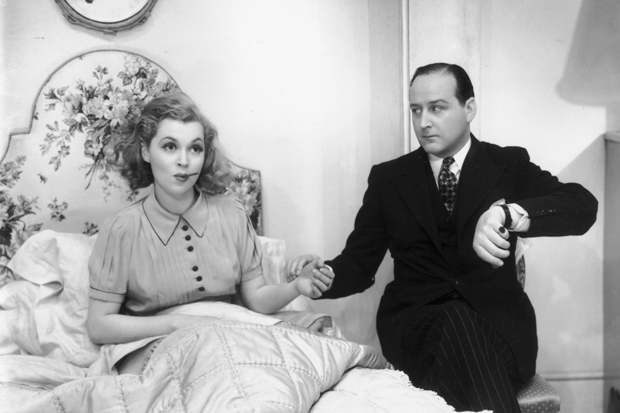There was a time, not long ago, when British GPs provided the best home doctor service in the world. Patients could telephone their doctor 24 hours a day, seven days a week (including Christmas), ask for a home visit and get one. Patients prepared to visit the surgery could expect to see a doctor the day they called.
Today, it is easier to find a plumber than a doctor at night and weekends. Patients wanting emergency help out of office hours must visit their nearest major hospital and spend hours queuing in the A&E department. In some areas the target waiting time is 12 hours, though in practice, things are often barbaric, with patients forced to lie in an ambulance, parked outside the hospital for up to eight hours before room can be found for them in the accident and emergency department. Patients who might otherwise have been saved are dying while waiting for treatment.
Patients who visit their GP in her surgery can, in many practices, expect to be given just enough time to describe one symptom. If they’ve got two they must make a second appointment.
It is generally assumed that the sudden deterioration in the quality of general practice is the result of the deal done between the government and the British Medical Association, the doctors’ union. The deal allowed doctors to opt out of providing night and weekend cover and, for most of the country, spelt the end of the traditional 24-hour-a-day cover. Those who looked a little closer realised that the deal was itself an inevitable result of EU employment laws, which regulated the number of hours the employees could work.
But although EU laws are responsible for the sudden deterioration in the quality of the NHS, they aren’t the whole answer. There is another organisation which deserves a good part of the blame: the General Medical Council.
The General Medical Council, the GMC, is a curious organisation which is part charity, part quango, part government department and part protection racket. It used to consist of little more than a file clerk, who kept the register of doctors who were qualified to practise medicine, and a committee of rather pompous individuals who sat in judgment when erring doctors were accused of bonking their patients on the consulting-room couch. The filing clerk kept a list of doctors and stored the list in a couple of filing cabinets. Every year the GMC published a couple of thick red books which listed all the doctors in the medical register. The whole thing cost next to nothing to run. As recently as 1973, the GMC’s total income was £662,579. I doubt if that would cover its phone bill nowadays.
Today, the GMC is a vast organisation with a huge budget and a seemingly insatiable yearning for power. It employs a host of administrators with ideas well above their station, though most have little or no experience of medicine in practice. The GMC still does nothing to improve the quality of medical care (it does nothing about dirty hospitals, for instance, or the over-prescribing of antibiotics) but its staff constantly make statements about how doctors should practise medicine. So, for example, the GMC has decided that it no longer approves of the Hippocratic Oath, which it considers rather old-fashioned.
The real problem with the GMC, however, is that it has been given the job of licensing doctors. After the Dr Harold Shipman scandal, it was decided in high places that ‘something’ had to be done to protect the public from dangerous doctors. Shipman, a general practitioner, had spent years methodically slaughtering over 200 of his patients and ministers were embarrassed. It was decreed that some form of regular testing should be introduced so that doctors in practice could be assessed. The plans for doctors to have competence tests every five years, with annual appraisals in between, were drawn up in 2008 by Professor Sir Liam Donaldson, the government’s chief medical officer at the time. Donaldson was instructed to do something by ministers who wanted to weed out rogue practitioners and to make sure that there would not be another Shipman embarrassment.
The GMC was given the job of finding a new way to assess medical practitioners. This was odd because the GMC was the body which was criticised for its culture and procedures in the official report into Shipman’s crimes.
Everyone knew that finding a way to assess doctors was never going to be easy. Older doctors, long out of medical school, were never going to accept any sort of academic assessment, and since modern medicine is still more of an art than a science, it was decided that it would be impossible to create a system which relied on assessing diagnostic skills.
So the GMC designed an entirely bureaucratic system (called ‘revalidation’) which was guaranteed to increase its own power and income and which ignored the fact that if Shipman were still alive and practising he would sail through with flying colours. The revalidation scheme is perfectly suited to the dishonest, the cheat, the silver-tongued and the rogue. There is little doubt among doctors that revalidation will result in a massive deterioration in the quality of medical care and a dramatic increase in the number of patients dying unnecessarily.
To pass their appraisal, doctors have to fill in reams of forms and find a few dozen patients and colleagues prepared to sign report cards. The scheme is a bureaucrat’s dream and a practitioner’s nightmare; it seems to have been designed by the sort of people who have six ballpoint pens in their breast pocket and its rigidity has made life unbearably difficult for thousands of doctors, such as locums and ships’ doctors, who do not fit neatly into the system.
Some parts of the revalidation procedure astonished me. So, for example, the GMC asked for details of all my motoring offences — which included details of a 1984 speeding offence and a £5 fine I received in 1977 when an officious policeman spotted me hurrying to a suspected heart attack patient. (My astonishment abated when I discovered that Ms Lindsey Westwood, who is in charge of the GMC’s revalidation programme, was just two years ago working for the Traffic Penalty Tribunal as an appeals manager. I do, however, find it interesting that the person the GMC have put in charge of checking the fitness to practise of every doctor in Britain was recently checking parking tickets for a living.)
The GMC has designed a scheme which has built it an empire. Doctors now have to pay the GMC £390 a year to be registered and licensed. They charge fees for everything imaginable. Last year the GMC had an income of £95.4 million. And that income is guaranteed to grow.
The risk is that by distracting doctors from the work they should be doing, the revalidation scheme will cause, not prevent, further harm to patients.
The GMC’s new method of assessing medical practitioners has made many doctors hate their jobs and it is pushing doctors into early retirement, with a growing number choosing to retire in their fifties. Doctors already had enough forms to fill in. The revalidation scheme has turned doctors into full-time form-fillers. A survey of GPs showed that 78 per cent thought that the revalidation programme was a waste of money.
Not so long ago, a doctor who retired would often work at his former practice as a locum, covering for holidays or sickness. His expertise, local knowledge and intuition would not be lost. In local emergencies, such as a flu epidemic, he could be called upon to help out. But the revalidation scheme makes that impossible. Once a doctor has retired, he can no longer practise at all. The doctor who retires at 55 must stay retired. As a result, locum doctors, many of whom don’t speak English properly, have to be imported at enormous expense from other EU countries.
It is perhaps not surprising that the GMC now provides private medical care for its staff.
Got something to add? Join the discussion and comment below.
Get 10 issues for just $10
Subscribe to The Spectator Australia today for the next 10 magazine issues, plus full online access, for just $10.
Dr Vernon Coleman is registered and licensed with the GMC.
You might disagree with half of it, but you’ll enjoy reading all of it. Try your first month for free, then just $2 a week for the remainder of your first year.














Comments
Don't miss out
Join the conversation with other Spectator Australia readers. Subscribe to leave a comment.
SUBSCRIBEAlready a subscriber? Log in